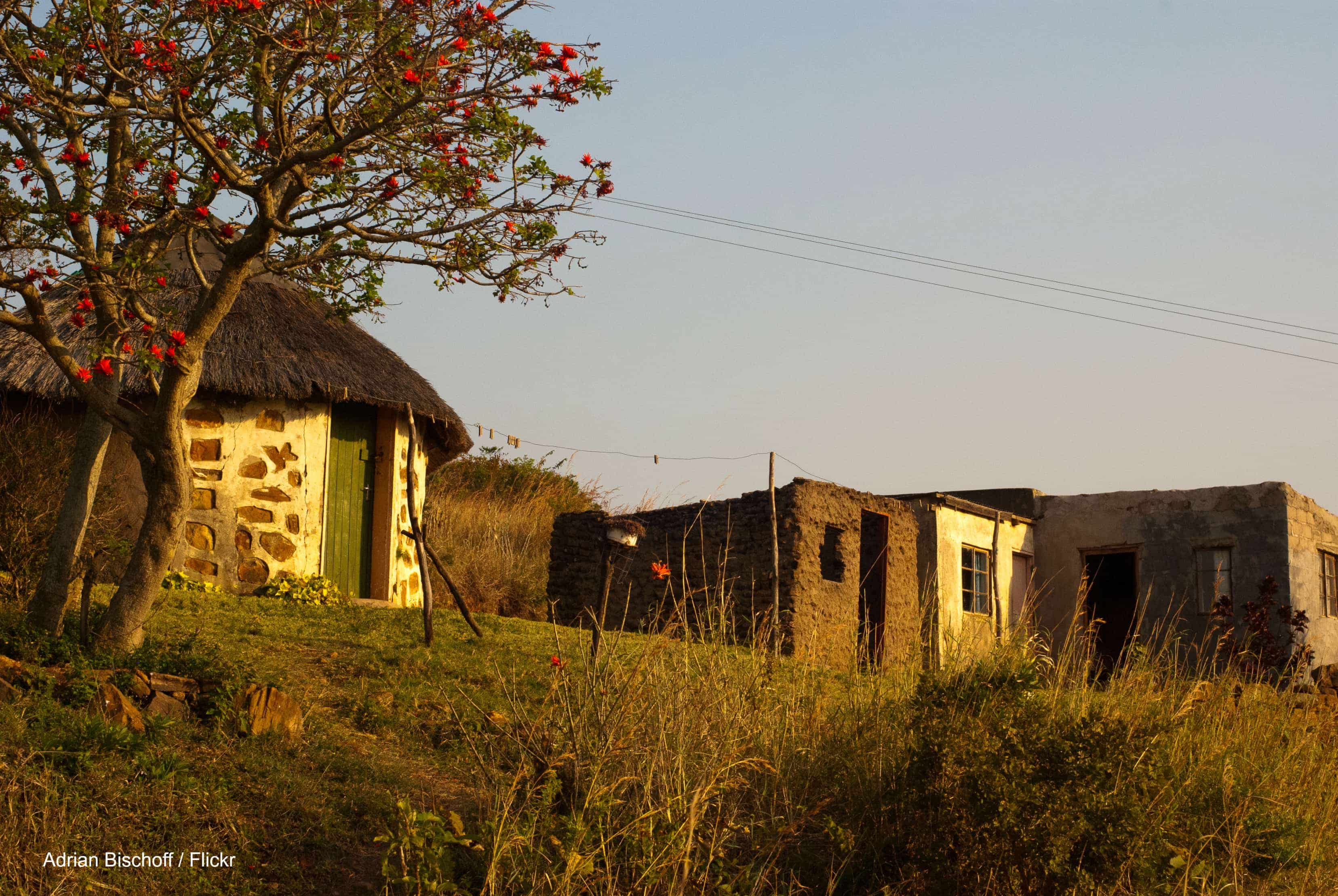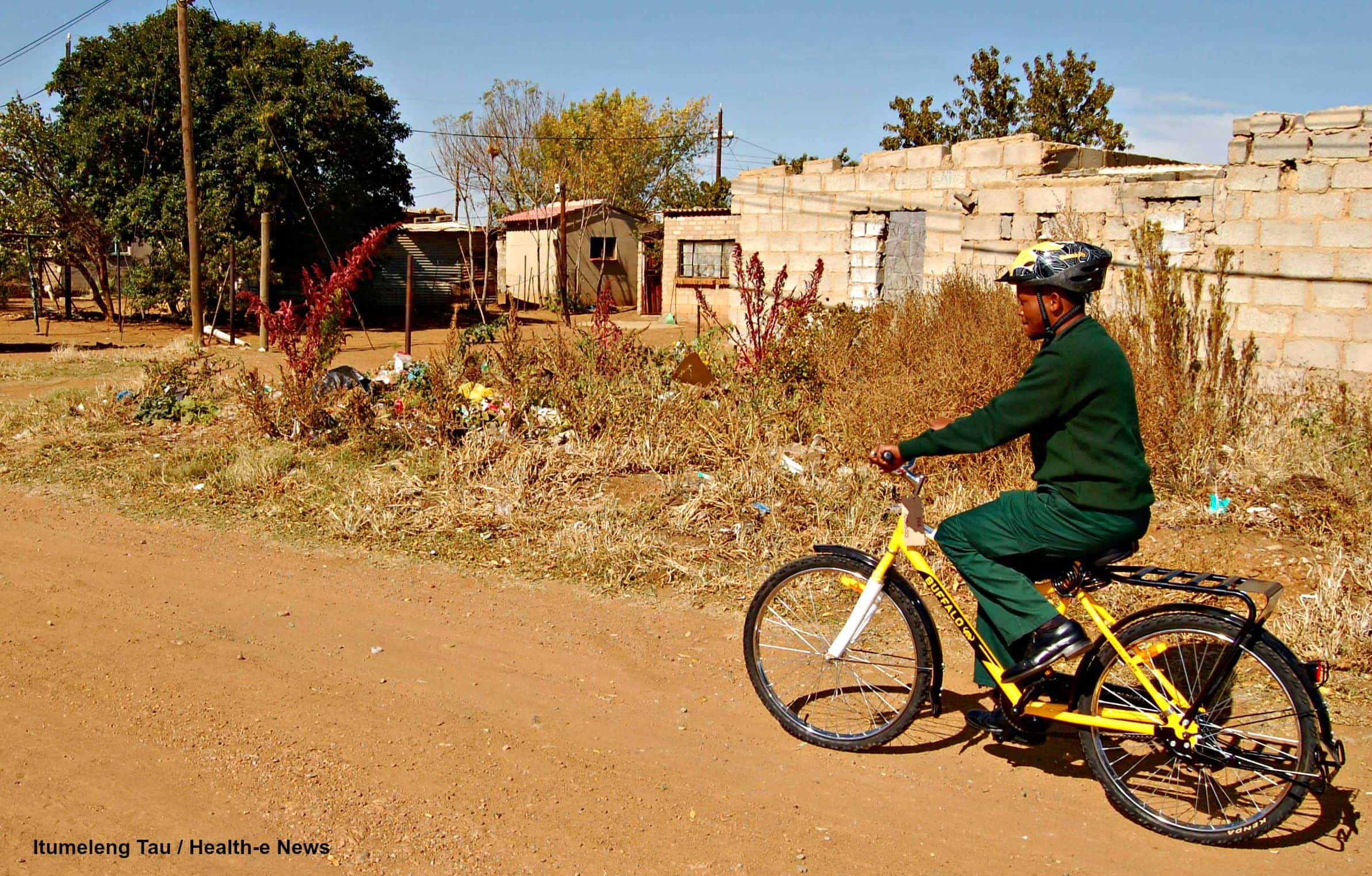Rural Reflections: Park homes and preemies


Tonight I’m third on call at the hospital. I’m sitting at the kitchen table of my park home with the kitchen door open, allowing the gentle buzz of crickets and insects to fill the silence. The lizard above the door is following the the three moths circling the naked light bulb with his big eyes.
It’s a quiet night so far. Every now and then I glance at my phone to make sure that it’s not quiet because I’ve lost cellphone signal like last week.
There are two other doctors on tonight. Being the first and second doctors on call, they are at the hospital dealing with patients. As third doctor on call, I’m around in case there is a cesarian section during the night or too many dire emergencies for two doctors to sort out.
It’s unpredictable. I take another sip of my rooibos tea.
We have to be on call about six times a month and rotate between first, second and third on call during these shifts. It’s nice when it’s your turn to be third on call because you get more sleep.
So I “went rural” for my community service. I’m thinking it’s no biggie. A majority of the trained health care professionals in South Africa do it for at least one year during community service. I figure it’s my turn now.
I’m closer to a hippo-infested lake than I am to a highway, but there was blue cheese at the local supermarket last week so I could definitely be living more “in the sticks”.
Crossing the threshold
I’m from a big city so I grew up with the sounds of highways and late night police sirens. I had my choice of jazz bars to watch live music on any given Sunday and could chose a restaurant by its proximity to beautiful views or half price specials – depending on what time of the month it was.[quote float= right]”I’m closer to a hippo-infested lake than I am to a highway, but there was blue cheese at the local supermarket last week…”
Here? I’m adjusting judging by the ease at which I settled in after returning from my first visit home.
That’s more than I can say when I arrived here. I was a hot mess.
I’d fought to get the day off from my internship. Some interns got relocation leave to allow them to move from their internships to their community services placements. Us less lucky ones had to hope that our heads of department would be kind enough to understand the complexity of moving one’s whole life to an unknown place and give us a day off.
The free time of an intern is not time taken for granted.
So my last day of annual leave as an intern was spent driving hundreds of kilometers to my new rural home. Along the way, the road crossed through a national park with signs saying, “Beware: wild animals”.
I wasn’t expecting any kind of welcome party, so I wasn’t disappointed.
The security guard at the entrance to the hospital pointed left to a chicken-wire gate that opened into a tree-lined dirt track with signs directing me to the doctors’ quarters. I moseyed my way along and found the prefab park home I would call home for the next year. Park homes are a common solution for a shortage of hospital acoomodations. The boxy, tin containers are almost identitcal on the inside – wood linoleum walls and wall-to-wall carpeted floors.
I was told that my parkhome would be fully furnished by the medical manager. I arrived to a fridge, stove, kitchen table, the odd pot, a kettle and a double bed in a room with built-in cupboards. I was grateful to have brought along my accumulation of tea and coffee mugs.
Day two and in the deep end
Day one involved signing contracts. Day two involved being neck deep in the paediatric ward. This entailed managing more than 25 patients that were not handed over to me, whom I had never met before and were in a department that I found myself in with no warning.[quote float= right]”I looked the mother in the eye when I broke the news to her. After that, looking people in the eyes was hard for a bit”
Their little eyes, fingers, lungs and miniscule veins were now my responsibility.
I felt that responsibility well up in me acutely when I lost a 950-gram newborn less than a month old in my first weeks in the ward.
Born preterm, the baby was too small to qualify for a transfer to our referral hospital, which has more with more resources to manage premature babies, but big enough to put up a good fight for a couple of days in our nursery.
When the baby stopped breathing, I spent more than 30 minutes trying resucitate him, my my knobbly index and middle fingers doing out mini-chest compressions amid the tubes and lines. I called a senior doctor for help. He gave it another go but also failed to get the baby breathing again.
No one likes to hear the wail of a mother who has just lost a child.
No one likes to be that person who was supposed to save the child but could not, whatever the prognosis at the outset.
No one likes that ugly niggling thought of, “if I had more experience, maybe this child would have lived” or “if this child was born in a different socioeconomic environment, in a different hospital, in the first world section of South African health care – this child would not have lost its life”.
I looked the mother in the eye when I broke the news to her. After that, looking people in the eyes was hard for a bit.
And so I’ve joined the throng of young doctors learning the lessons of rural South African medicine. You’re stretched to do things you didn’t think you could do but if you don’t try to do it no one else is going to do it for you.
It means getting things wrong, phoning referral hospitals hundreds of kilometres away in the middle of the night for reassurance and for a plan when you don’t back your own plan. It’s the wave of relief hearing a healthy cry seconds after pulling a baby out of a woman’s opened abdomen during an emergency cesarian section when a baby is in trouble. It’s the adrenaline rush of finishing an overnight stint having cleared out the emergency room successfully.
Author
Republish this article
This work is licensed under a Creative Commons Attribution-NoDerivatives 4.0 International License.
Unless otherwise noted, you can republish our articles for free under a Creative Commons license. Here’s what you need to know:
You have to credit Health-e News. In the byline, we prefer “Author Name, Publication.” At the top of the text of your story, include a line that reads: “This story was originally published by Health-e News.” You must link the word “Health-e News” to the original URL of the story.
You must include all of the links from our story, including our newsletter sign up link.
If you use canonical metadata, please use the Health-e News URL. For more information about canonical metadata, click here.
You can’t edit our material, except to reflect relative changes in time, location and editorial style. (For example, “yesterday” can be changed to “last week”)
You have no rights to sell, license, syndicate, or otherwise represent yourself as the authorized owner of our material to any third parties. This means that you cannot actively publish or submit our work for syndication to third party platforms or apps like Apple News or Google News. Health-e News understands that publishers cannot fully control when certain third parties automatically summarise or crawl content from publishers’ own sites.
You can’t republish our material wholesale, or automatically; you need to select stories to be republished individually.
If you share republished stories on social media, we’d appreciate being tagged in your posts. You can find us on Twitter @HealthENews, Instagram @healthenews, and Facebook Health-e News Service.
You can grab HTML code for our stories easily. Click on the Creative Commons logo on our stories. You’ll find it with the other share buttons.
If you have any other questions, contact info@health-e.org.za.
Rural Reflections: Park homes and preemies
by Guest Author, Health-e News
April 15, 2015
MOST READ
Hunger and mental health: study looks at how families cope with food insecurity
There’s more to self-care than scented candles or massages, it’s a key public health tool
Prolonged power outage leaves hospitals in the dark for two days
Access to clean water and stable electricity could go a long way to addressing rising food poisoning in SA
EDITOR'S PICKS
Related


PHASA 2019 Reflections: The right to health after 25 years of democracy

